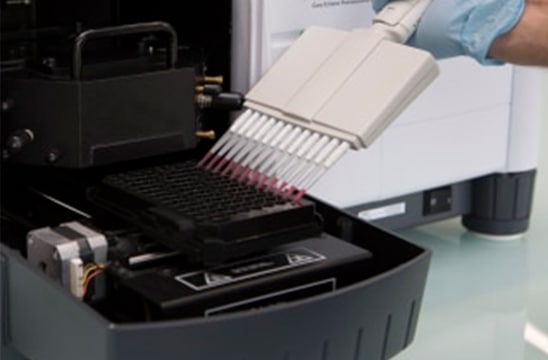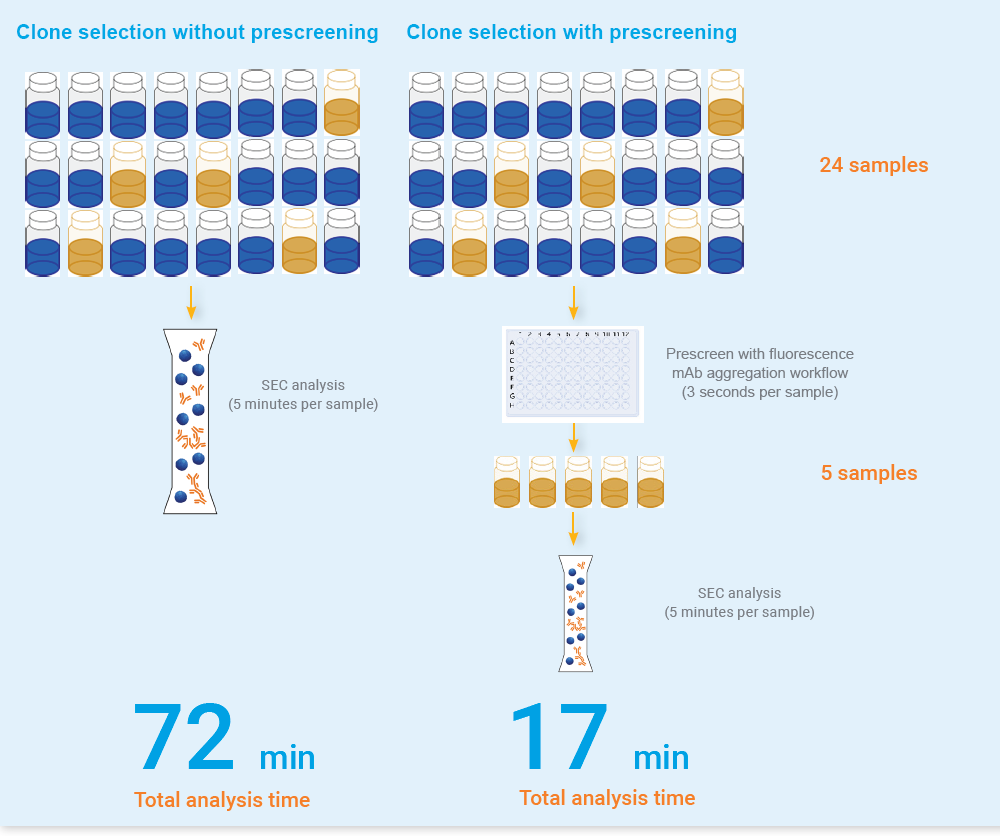
Research to block or treat SARS-CoV-2 infection has intensified the interest in developing targeted monoclonal antibodies (mAbs) – a key weapon our bodies produce to fight viruses. The development of targeted mAbs relies on the screening of hundreds to thousands of variants to identify lead candidates for further investigation.
Antibody aggregation studies
During mAb candidate selection, researchers examine the tendency of mAbs to aggregate. Aggregates are an unwanted by-product that can cause severe illness if injected into patients, and their formation can block the active parts of the antibody needed to fight infection. A mAb candidate that aggregates is typically ruled out for further study.
Researchers currently use size exclusion chromatography (SEC) to screen mAbs for their tendency to aggregate. Using the Agilent 1260 Infinity II Bio-Inert LC and an AdvanceBio SEC column, analysis times can be as short as three minutes per sample. However, with many thousands of samples, using SEC alone is a slow process.
Accelerating mAb screening by adding a three-second prescreening step
Matt Quinn, spectroscopy product manager for the Agilent Cary Eclipse, describes the development of a rapid technique for prescreening the tendency of mAbs to aggregate.
“When the pandemic hit around January, the need to analyze thousands of samples increased dramatically. We were already working on our three-second prescreening step with existing technology.

By combining the Agilent Cary Eclipse fluorescence spectrometer with a fluorescent dye, a fast prescreening technique was created. Adding fluorescent dye to mAb candidates allows researchers to rapidly determine whether the antibody tends to aggregate. The dye binds specifically to mAb aggregates; the higher the aggregation, the higher the measured fluorescence signal.”
So how does adding a step decrease overall analysis time? By reducing the number of candidate mABs that undergo the more time-consuming SEC screening. The Cary Eclipse system can screen for aggregation in around three seconds per sample. Each candidate screened out in this way saves nearly five minutes of SEC analysis. Up to 96 samples can be loaded into the Cary Eclipse microplate reader in one batch; sample preparation is quick and simple, and operation of the system requires little training.

Analysis shows for a batch of 24 samples to be screened there is a greater than 70% time saving over using SEC alone.
When time is of the essence
Prescreening with the high-throughput, fluorescence-based mAb aggregation analysis solution complements the optimized Agilent workflow developed with the Agilent 1260 Infinity II Bio-Inert LC SEC system. Adding the prescreening step has the potential to reduce mAb screening time significantly compared to SEC alone, accelerating the search for effective antibodies in the fight against SARS-CoV-2.
References:
- Ratanji KD, Derrick JP, Dearman RJ, Kimber I (2014). Immunogenicity of therapeutic proteins: Influence of aggregation. Journal of Immunotoxicology, 11:99–109.
Supporting References:
- Agilent Cary Eclipse Fluorescence spectrometer
Flyer: Fast-tracking mAbs selection – Aggregation prescreening with the Cary Eclipse microplate reader
The following publications provide more information about the clone selection workflows: